2018 Top 10 CSR Practices in China
2019-01-24GoldenBeeadmin0010

In 2018, we saw a number of best practices. More enterprises have innovatively carried out social responsibility projects based on their professional advantages and business characteristics. They did what they had promised.
In addition, some forward-thinking pioneers not only fulfilled their responsibilities in the traditional areas of product quality, employee development and energy conservation, but also foresaw possible social problems and social contradictions in the future, in response to the Sustainable Development Goals (SDGs).
As the first step in 2019, China WTO Tribune selected the 2018 top ten CSR practices (in chronological order) to review and solute all efforts in social responsibility development, and hopes to welcome a better 2019.
1. Dell recycles ocean plastic waste to produce protective trays
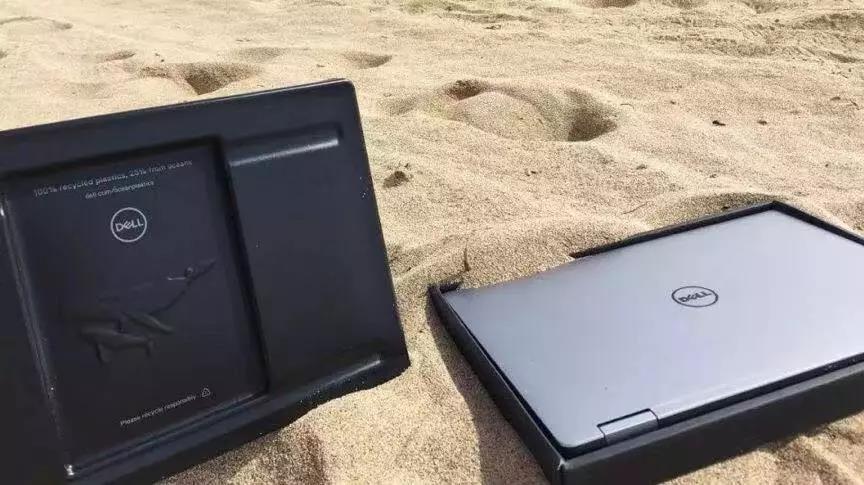
On January 9-12, Dell officially released a new version of the XPS13 laptop during the International Consumer Electronics Show 2018 (CES2018). What is more eye-catching than its performance is that XPS’s black packaging tray is made of 25% ocean plastics collected on beaches, waterways and other coastal areas, and 75% other recycled plastics for a sustainable solution.
To solve the problem of ocean plastic pollution, Dell has cooperated with Lonely Whale (a foundation aims to protect ocean ecology) and established an ocean waste catcher department for countries who produce more ocean waste to prevent waste from entering the ocean. At the same time, Dell started a study on the cleanup and disposal of ocean waste, aiming to integrating ocean waste into Dell’s renewable economic chain. Ocean waste recycling has become a hot topic in recent years, and Dell is undoubtedly taking the lead in this field.
2. Volvo Ocean Race puts sustainability and ocean health into its core values
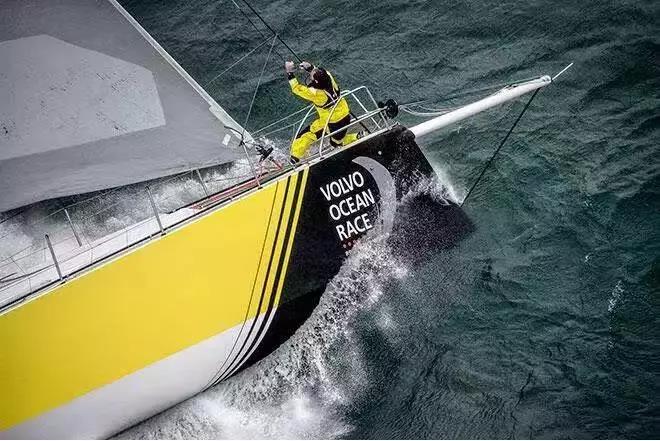
From January 31 to February 5, Guangzhou welcomed the Volvo Ocean Race. During the period, sailing competitions, cultural events and experience activities were held. The “Racing towards Sustainable Transformation” Sustainability Forum organized by Volvo Group on February 2, invited nearly 100 representatives from government, research institutions and enterprises to discuss and share the innovative philosophy and practical experiences on the path of sustainability.
As one of the top three sailing regattas in the world, the Volvo Ocean Race is a model of sustainable events. In May 2017, the organizing committee released its sustainable development strategy, including (1) reducing waste of resources during the event; (2) using the international communication platform of the event to promote the philosophy of sustainability; (3) promoting environmental protection activities with government, science, sports and business organizations. Nowadays, the Volvo Ocean Race has become a sustainable sporting activity while guiding people to declare battle over ocean waste.
3. CSG organizes the first family rock climbing competition

On March 24, China Southern Power Grid (CSG) organized the first family rock climbing competition themed with “electricity lights up life, we climb for a new era” in Dongguan, Guangdong. This competition was a brand campaign of CSG in 2018, and it was also an innovative attempt to spread the brand image of “CSG Lights up Every Household in Southern China”. After the first stop in Dongguan, the competition was continued in Guangzhou, Haikou, Zunyi, Nanning, Kunming and Shenzhen until late May, lasting 2 months.
Family rock climbing competition was an important part of CSG Social Responsibility Day in 2018. During the event, CSG also provided assistance for special families and popularized related knowledge of electric safety, electricity saving and smart meters. CSG has set a good example in enhancing communication between enterprises and stakeholders, and promoting support and trust among all parties.
4. Intel applies AI to help preserve the Great Wall and Siberian tiger

On April 25, Intel and China Foundation for Cultural Heritage Conservation reached an agreement to launch a project applying cutting-edge technology in preservation and utilization of cultural heritage in the Mutianyu Great Wall in Beijing. The two sides jointly announced that they would apply AI technology and the Intel Falcon 8+ drones to quickly and accurately capture high-resolution images, create data and 3D models, providing innovative plan for the protection and restoration of cultural heritage.
On July 29, Intel, in collaboration with World Wildlife Fund, turned the attention to the protection of the Siberian tiger. It plays an exemplary role for releasing the power of technology to protect the wildlife and natural environment.
These practices are the important measures for Intel to release the value of data, use innovative technology to achieve application breakthroughs and the implementation of intelligence. It is also one of the Intel’s “Tech for Good” projects.
5. SGCC Jiangsu's star bus passes love around with electricity
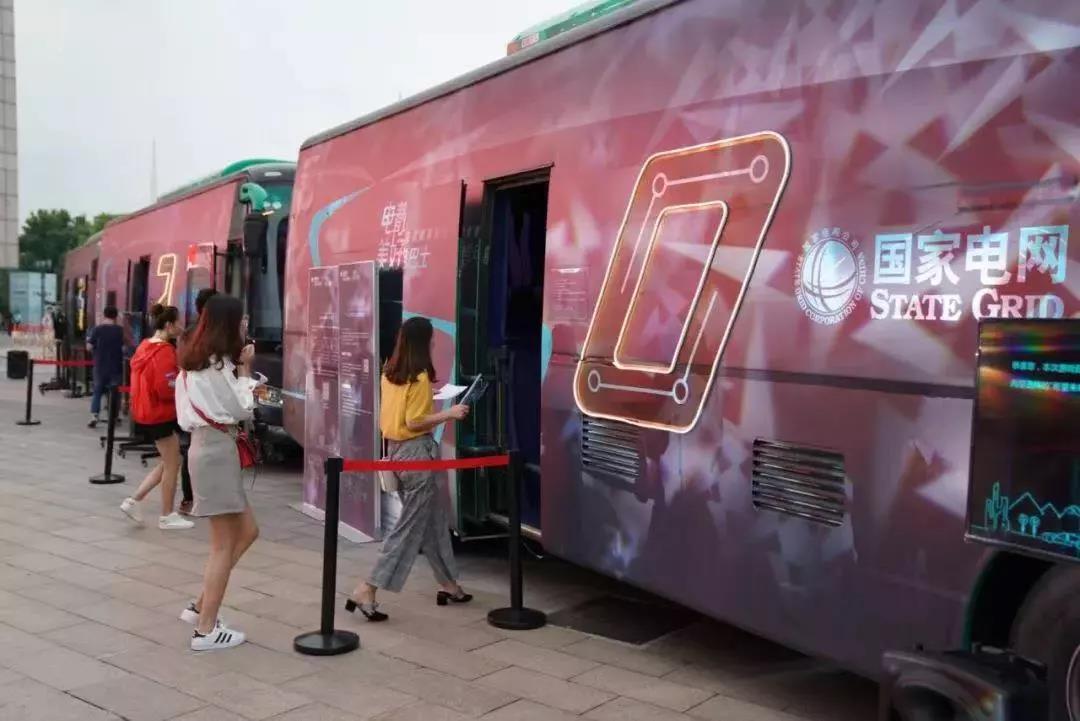
On May 10-20, State Grid Jiangsu Electric Company Limited (SGCC Jiangsu) organized a series of events about “electric power for a better future”. Besides three Dream Buses, a flash dance, an intelligent marketing robot, a face-to-face electricity marketing consulting, a “VR” puzzle game and many other fun activities were shown. The event helps State Grid have a deep interaction and communication with the public.
During the ten days’ events, SGCC Jiangsu innovatively showed that State Grid’s business philosophy of higher quality services and eco-friendly development to the public and other enterprises by integrating technology and fashion to interact with stakeholders in the comfortable and happy ways. State Grid expressed love and passed on love with practical actions.
6. Danzhai Wanda Village facilitates poverty alleviation among Danzhai county in a multi-dimensional innovative way

On July 3, Wanda Group decided to donate another 500 million yuan to support the second-phase construction of the town after the first-phase donation of 800 million yuan, so as to further improve the quality and tourism functions of the town. According to the statistics of Danzhai government, since its opening one year ago, Wanda Danzhai Town has achieved remarkable result in poverty alleviation. The town received 5.5 million visitors in the whole year, which is 600% of the total number of tourists in Danzhai County in 2016. The comprehensive tourism revenue of the county reached 2.43 billion yuan, which is 433% of the county’s comprehensive tourism revenue in 2016, driving 16,000 people in Danzhai County to achieve income growth.
Danzhai Wanda Village is the core of Wanda Group’s poverty alleviation project in Danzhai County. Wanda has embodied four major innovations, namely designing whole renowned tourist resort, embodying ethnic customs of the Miao and Donge ethnic peoples, integrating into local culture, and focusing on enhancing experiencing consumption in its pre-planning. In addition, Wanda innovatively applied the ways of brand marketing such as “rotating town mayor”, Wanda Voice, and media convergence, etc. in operation to effectively expand its popularity. Wanda takes its own advantages to build a small town and works harder for the town’s long-term operation. Its model of “using the right way, doing the right thing” is worth learning.
7. Ali Health releases an online app for vaccine check

In late July, the vaccine scandal of Wuhan Institute of Biological Products Co. Ltd. and Changchun Chang-sheng Bio-tech Co was exposed, causing great public concern. Many parents were worried, anxious, and eager to know if the vaccines for their children were safe. In the morning of July 24, just several days after the scandal, Taobao, Tmall, Alipay, and Ali Health released an online app to trace a vaccine’s identity code, production information and expiration date.
The vaccine inquiry system was developed by Alibaba’s employees after spontaneously discussion and overnight work, showing a large enterprise’s warmest sense of responsibility in details. The solution to social problems is inseparable from commercial and technological innovation, but in addition to resources, technology, and funds, the management mechanism, corporate culture, and employees’ awareness are the root causes of such quick response. Charity is not only about money donation, but also a positive energy that we willing to try our best to deliver it to the community.
8. Apple facilitates the 2018 Mobile Application Innovation Contest
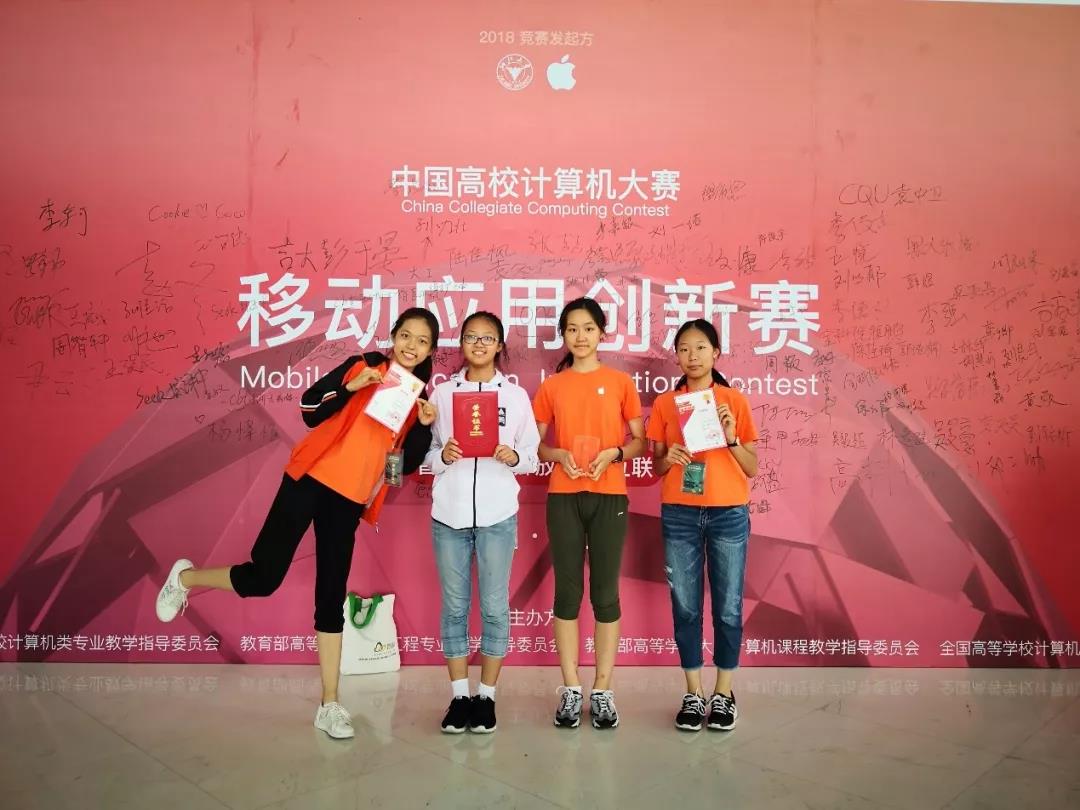
On September 15-16, Apple co-organized the 2018 China Collegiate Computing Contest - Mobile Application Innovation Contest with Zhejiang University in September. For the third year as the organizer, Apple saw a bigger scale of the contest than ever and also the high-profile program “Programming for Everyone” designed for primary and middle school students, which will foster students’ innovative ability and programming skills from an early age, and improve their ability to analyze and solve problems with computers, especially their capabilities of designing and developing mobile application.
Isabel Ge Mahe, Vice President of Apple, Managing Director of Greater China said, “I am happy to see the wonderful presentations of the students. Your courage to be bold and innovative, your concern for social issues and passion for programming languages, especially the love and desire expressed from primary and secondary school students to explore the world, will make the world a better place.” The project has set a good example to combine education and sci-tech, making technology be available and the philosophy of innovation be early rooted in the children’s minds.
Isabel Ge Mahe, Vice President of Apple, Managing Director of Greater China said, “I am happy to see the wonderful presentations of the students. Your courage to be bold and innovative, your concern for social issues and passion for programming languages, especially the love and desire expressed from primary and secondary school students to explore the world, will make the world a better place.” The project has set a good example to combine education and sci-tech, making technology be available and the philosophy of innovation be early rooted in the children’s minds.
9. Metro's “Sustainability Week” makes consumption more sustainable
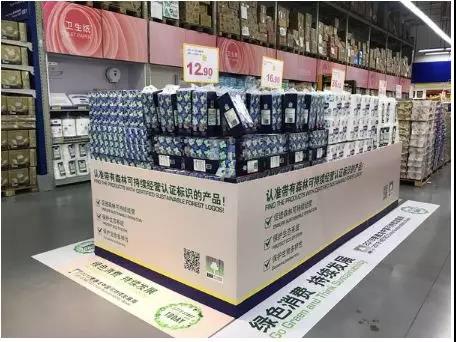
On December 5, Metro China launched the “2018 Metro China Sustainability Week” in Shanghai. This year marks the fourth consecutive year for Metro to hold the “Sustainability Week” in China and launch the “Metro One Hour” light-off event. At the same time, in order to promote green consumption, Metro China’s 94 stores simultaneously displayed Metro’s environmentally friendly products, including sustainability-certified printing paper and paper towels, LED lights, and sustainable marine certified seafood, organic fruits and vegetables, etc. on December 4-9. Among these products, customers can also find many green Metro brand products.
As an intermediate link between suppliers and consumers, retail chain enterprises have unique advantages in promoting responsible production and consumption. As a member of the China Sustainable Retail Round table (CSRR), Metro has not only actively promoted sustainable consumption, but also actively implemented the philosophy of sustainability inprocurement, logistics, operations, and employee development, etc. and has set a good model and reference for the industry.
10. Novartis plants 4,095 hectares by carbon-sink forestry project in Southwest Sichuan in 8 years

On December 18, Novartis Pharmaceuticals (China) held the Conference on the Results Report on Novartis Carbon-sink Forestry Project in Western and Southern Sichuan Province in Chengdu. The project is China’s first afforestation carbon-sink forestry project directly cooperating with foreign-funded enterprises, Sichuan’s largest forestry carbon-sink project, and also the third practice of Novartis’ long-term campaign to reduce its carbon footprint globally.
The project plans to invest 100 million yuan for construction in 30 years and will be completed by Novartis, local government and community. During implementing the project between 2011 and 2018, 21 million trees, including fir, spruce, and pinus, armandii, have been planted on 4,095 hectares of deforested mountainsides, improving the environment and biodiversity. In addition, the forest carbon-sink poverty alleviation demonstration project based on the Novartis carbon-sink forestry project in Southwest Sichuan not only increases the income of poor communities, but also raises people’s awareness of ecological protection, and 97% of the beneficiary is from ethnic minorities. It has become a model of corporate practice integrating carbon-sink economy, poverty alleviation & ambition prompting, multiple benefits of environmental protection, and multi-cooperation.
Experts participating in the selection of the “2018 Top 10 CSR Practices in China” and putting forward opinions and suggestions include:
· Yu Zhihong, President and Editor-in-Chief of China WTO Tribune
· Chen Yuanqiao, Secretary General of Social Responsibility Working Group of International Standardization Organization; Researcher of China National Institute of Standardization (CNIS)
· Li Ling, Vice Chairman, China Association of Enterprises with Foreign Investment
· Li Li, Associate Research Fellow of Institute of International Economy, University of International Business and Economics (UIBE), and Director of China Research Center for Technical Barriers to Trade, UIBE
· Zhang Shaoping, Executive Director, China Association of Social Workers, Committee of Corporate Citizenship
· Zhou Weizhong, Professor of Business School, Central University of Finance and Economics
· Guo Xiuming, Vice Chairman, China Information Technology Industry Social Responsibility Committee
· Guo Yi, Professor of School of Economics, Beijing Technology and Business University (BTBU), and Director of Business Environment Research Center, BTBU
· Yin Gefei, Chief Expert of GoldenBee Thinktank; Secretary of ISO 26000 Stakeholder Global Network (SGN)
· Liang Xiaohui, Ph.D, Chief Researcher of Social Responsibility Office, China National Textile and Apparel Council
· Han Bin, Executive Secretary-general of Global Compact Network China
· Lei Hong, Vice Chairman of Chinese Sociological Association, Professor of School of Sociology, Huazhong University of Science and Technology (HUST), and Dean of HUST-GoldenBee CSR Research Institute
· Tan Mingfang, Professor of School of Philosophy, Zhongnan University of Economics and Law, Vice Chairman of Hubei Sociological Association
· Zhai Qi, Executive Secretary General, China Business Council for Sustainable Development (CBCSD)
· Xue Dayuan, Professor of Minzu University of China, Chief Scientist of “Project 985” Ecological Environment Platform
Best Practices
- The 100-year brand — Air Liquide also has a sense of juvenile
- Beijing Public Transportation Corporation: Developing green transportation to build a harmonious and livable capital
- CGN: Building a modern factory in barren deserts and developing a new win-win cooperation model along “Belt and Road”
Upcoming Event

All the materials on the site “Source: XXX (not from this site)” have been reprinted from other media. They do not imply the agreement by the site.
All the materials with “Source: CSR-China Website” are the copyright of CSR-China Website. None of them may be used in any form or by any means without permission from CSR-China Website.
GoldenBee Official WeChat
Copyright © Csr-china.net All Right Reserved.
京ICP备13041808号-3










